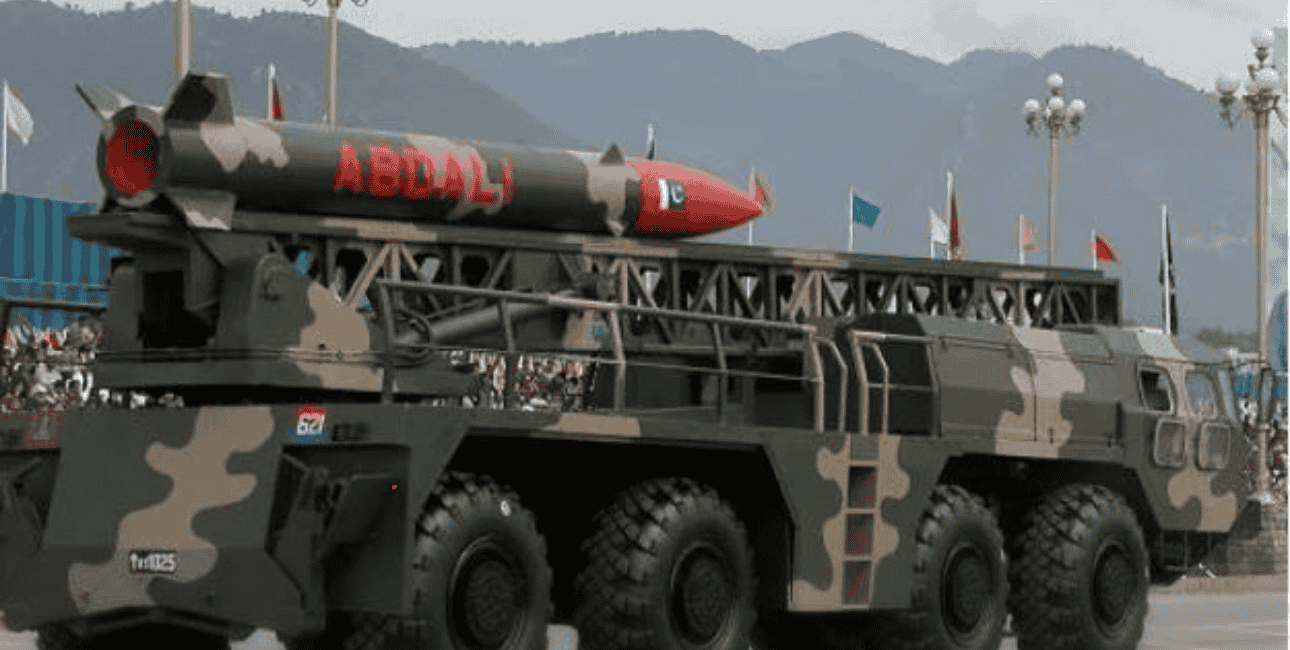 English
English

Pakistan has tested the Abdali ballistic missile amid heightened tensions after the Pahalgam terror attack. Read more on Dynamite News.

Pakistan's Abdali Missile Test (Image Source: Internet)
New Delhi: Pakistan has tested the Abdali ballistic missile amid heightened tensions after the Pahalgam terror attack, reports Dynamite News correspondent.
Pakistan is trying to move heaven and earth to stop Indian action against them after the Pahalgam terror attack. It is being said that Pakistan has tried to warn India through this.
Tensions between India and Pakistan are at their peak after the terrorist attack in Pahalgam on April 22. 26 people were killed in this attack, most of whom were tourists.
Capability of Abdali missile
The Abdali missile is capable of striking up to 450 km. It is also known as Hatf-2 and is a short-range ballistic missile.
It is equipped with state-of-the-art inertial and satellite-based navigation systems, and its CEP (Circular Error Probable) is also low.
According to Pakistani media, this missile is designed for quick attacks in border areas. The Abdali missile has been jointly developed by Pakistan's Space Research Commission (SUPARCO) and defense research institutes. This is an advanced version of the Hatf-1 missile.
How will India tackle it?
India has much more powerful missiles than Pakistan. The Abdali missile is weaker than the Indian missiles both in terms of technology and lethality. India has long-range missiles that can target any part of Pakistan.
The Pakistani army claimed that this test was part of the "Indus" exercise and its purpose was to check the preparedness of the troops and the technical capabilities of the missile. However, Indian sources believe that this is a symbolic threat.
Prime Minister Narendra Modi made it clear in a meeting with defense officials on Tuesday that "the armed forces will have complete freedom to choose the method, targets, and timing of retaliatory action against terrorism."
In 2016, the Indian Army avenged the terrorist attack with a surgical strike. In 2019, India broke the back of Pakistan by conducting an airstrike. Now Pakistan believes that India can conduct a naval strike this time.
This is the reason why Pakistan has deployed F-16s to protect Gwadar Port. It is a different matter that F-16s will not be able to do anything in case of a naval attack. But these fighter jets are not designed to stop naval attacks.
Actually, Pakistan is removing its F-16 jets from the forward base. It knows that after the 2019 airstrike, its F-16 was shot down by India's MiG-21. Therefore, Pakistan does not trust the F-16. And the second thing is that America will not allow it to use F-16s.